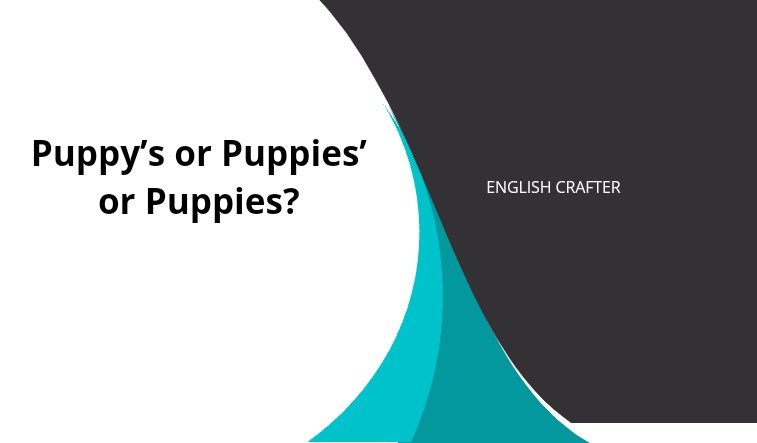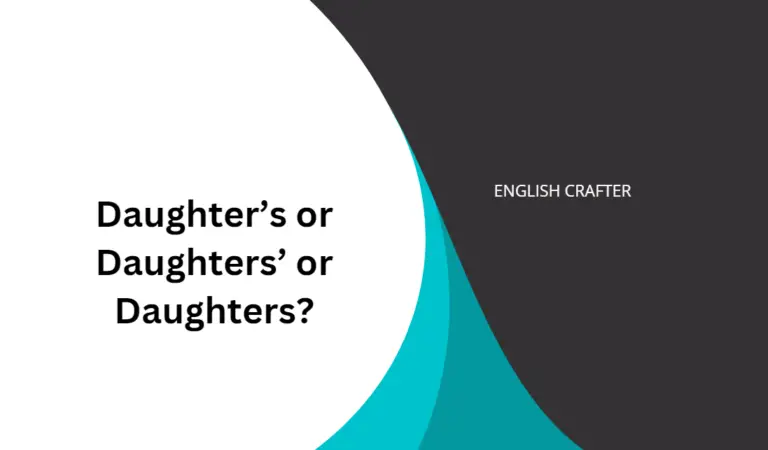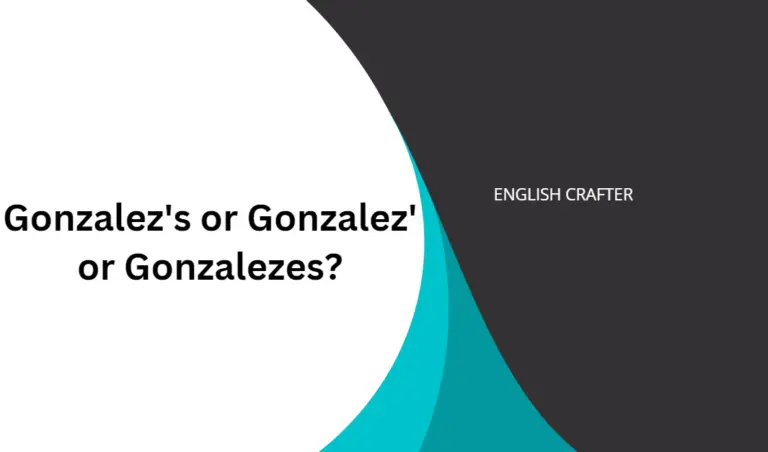Puppy’s or Puppies’ or Puppies?


Puppy’s is the singular possessive form of “puppy”, indicating ownership by a single puppy. E.g, “My puppy’s tail wags whenever I come home.” Furthermore, “puppies’” is the plural possessive form, used when multiple puppies possess or own something. E.g, “The puppies’ toys were scattered all over the living room.” Additionally, “puppies” is the standard plural form of “puppy”.
The following chart outlines the different forms of the word “puppy”. Since “puppy” ends in a “y”, the plural is formed with “-ies”.
| Form | Example |
| Singular | Puppy |
| Plural | Puppies |
| Singular Possessive | Puppy’s |
| Plural possessive | Puppies’ |
Here are some contextual examples of the four forms:
Singular: Bringing home a puppy can be an exciting experience.
Plural: Adopting two puppies at once requires careful planning.
Singular possessive: My puppy’s favorite spot to nap is by the fireplace.
Plural possessive: You could see the puppies’ excitement as they played in the garden.
From the examples above, we can clearly see the differences between the singular possessive dorm and the plural possessive form. To avoid wrongful use of these forms in future, continue reading this article for more insights..
Puppy’s
“Puppy’s” is the singular possessive form of “puppy”, referring to things that a single puppy possesses. Note that you ought to add an apostrophe and s here.
You may also use the singular possessive to describe different parts of a puppy’s anatomy or its possessions:
- My puppy’s ears perk up whenever I mention going for a walk.
- The puppy’s bed is lined with soft blankets for extra comfort.
- His puppy’s energy seems boundless during playtime.
Moreover, you can use the singular possessive to indicate non-physical aspects of a puppy, such as its behavior and traits:
- My puppy’s enthusiasm brightens even the gloomiest of days.
- Her puppy’s loyalty is unwavering, always by her side.
- Everyone admires my puppy’s intelligence and eagerness to learn.
Additionally, you may refer “puppy’s day out” to an activity undertaken with a single puppy:
- I took Max for a puppy’s day out at the dog park.
- We had a wonderful puppy’s day out hiking in the mountains.
- For his birthday, we planned a puppy’s day out at the beach.
- The sunny weather was perfect for a puppy’s day out exploring the neighborhood.
However, as mentioned later, this term can also appear in the plural possessive.
Puppies’
“Puppies’” is the plural possessive version of “puppy”, indicating that multiple puppies possess or own something.
You may also use the plural possessive to refer to items shared among multiple puppies:
- The puppies’ bowls were filled with freshwater and kibble.
- The puppies’ tails wagged in unison as they greeted their owners.
- A pile of toys sat in the corner of the room, the puppies’ favorite playthings.
Furthermore, it may also be used to refer to areas or activities involving multiple puppies:
- The puppies’ playpen provided a safe space for them to romp and wrestle.
- The training class focused on teaching the puppies’ basic commands.
- A puppy party was organized for the puppies’ socialization and fun.
In addition, the term “puppy’s day out” can also be plural if mentioning more than one puppy going for a day out.
Puppies
“Puppies” is the plural version of “puppy”, used when mentioning more than one puppy in non-possessive sentences.
You can use the plural form in two ways:
- To refer to a specific number of puppies:
- There were five puppies in the litter, each with its own unique markings.
- At the adoption event, I fell in love with two puppies, unable to choose between them.
- The breeder had a new litter of ten puppies, all eagerly awaiting their forever homes.
- To refer to all puppies:
- Puppies require a lot of time, patience, and training.
- Many families enjoy watching puppies play together at the dog park.
- It’s heartwarming to see puppies bring joy and laughter into people’s lives.
- Some people prefer adopting older dogs, while others can’t resist the charm of puppies.






